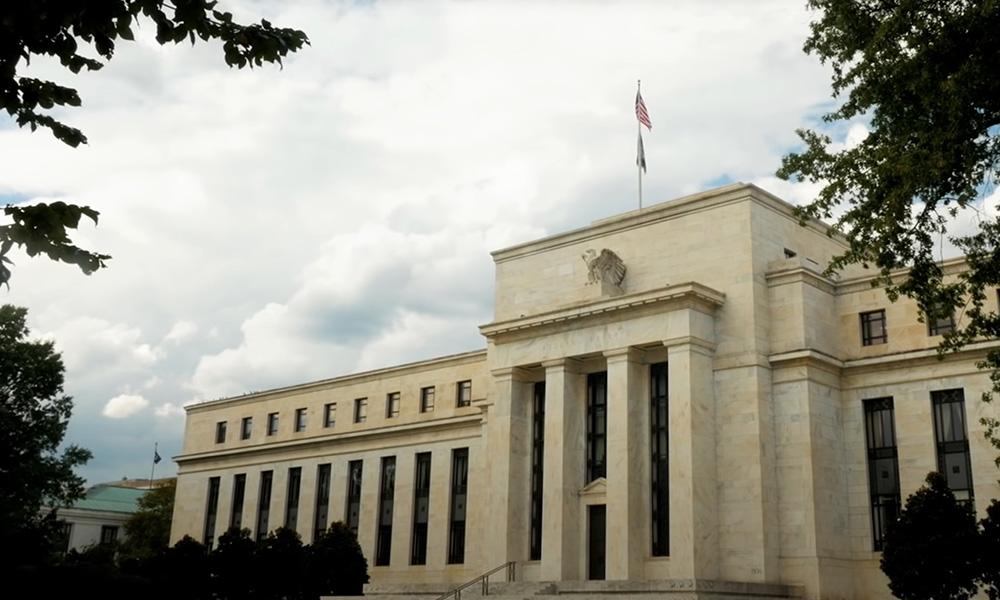Internal game of the Federal Reserve and the competition for the next chairman
2025-07-19 01:43:58

Federal Reserve Board Governor Christopher Waller recently publicly expressed his willingness to vote against the Federal Open Market Committee (FOMC) meeting to push for a rate cut in July. At the same time, Trump's continued pressure on current Chairman Jerome Powell and the dynamics of the next chairman's selection have also exacerbated market concerns about the independence of the Federal Reserve and its future policy direction.
Is Waller's "no" vote intended to compete for the next Federal Reserve Chairman?
On July 17, Waller clearly supported the FOMC meeting in July to cut the federal funds rate by 25 basis points, arguing that inflation was close to the 2% target and that upside risks were limited. He believed that action should not be taken until the labor market deteriorated significantly, which was consistent with the position of Vice Chairman Michelle Bowman. Waller's statement sparked heated discussions on social platforms. Some analysts believed that his move not only reflected his judgment on economic data, but also might pave the way for his bid for the next Fed chairman.
The U.S. retail sales data for June was strong, but inflation expectations rose. Waller believes that interest rate cuts can ease the pressure of economic slowdown and avoid overheating of inflation. Waller's public "dissenting vote" may exacerbate the internal divisions of the FOMC.
Bloomberg pointed out that Waller's statement reflects the division within the Fed on expectations for Trump's policies. The "dovish" members believe that signs of economic slowdown support interest rate cuts, while some members are worried that Trump's policies will push up inflation and force the Fed to maintain high interest rates, making the outcome of the July meeting full of suspense.
Powell becomes Trump's "target"
Trump has been criticizing Powell since he returned to the White House in early 2025. In April, he demanded an immediate interest rate cut from the Federal Reserve and threatened to fire him. On July 2, he called on Powell to "resign immediately" on social media and called on Congress to investigate his policy mistakes, which exacerbated market concerns about the independence of the Federal Reserve. Since taking office in 2018, Powell has experienced criticism during Trump's first term and a brief respite during Biden's term. Biden nominated him for re-election in 2022, but he became a target again after Trump's return.
Although U.S. law stipulates that the president has no power to directly remove the Fed chairman, and Powell has emphasized that he will work until the end of his term in May 2026, Polymarket data shows that the probability of Powell being removed from office this year has increased significantly, creating the biggest political crisis faced by the incumbent chairman in the 100-year history of the Fed. Recently, the renovation of the Fed headquarters building has also been used by Trump as a "handle" to attack Powell. Although the renovation itself may not be enough to shake his position, Trump may marginalize Powell by nominating a new chairman or putting pressure on "allies" within the FOMC.
The top candidate for the next chairman
As Powell's term draws to a close, the race for the next Fed chairman has begun. The Wall Street Journal lists four top candidates:
Kevin Walsh : In an interview on July 17, he called for a "system change" at the Federal Reserve, criticized the "credibility deficit" of policies under Powell's leadership, suggested that the Federal Reserve and the Treasury Department strengthen policy coordination, and hinted at support for Trump's call for low interest rates. His hawkish background and pro-market stance make him a popular candidate, but his radical reform advocacy may trigger market fluctuations.
Kevin Hassett : As Trump's economic adviser, he advocates stimulating economic growth through interest rate cuts and deregulation, and believes that the Federal Reserve should prioritize supporting Trump's "America First" economic agenda. His position is highly consistent with Trump's, but his lack of experience within the Federal Reserve may limit his influence.
Scott Bessant : As Treasury Secretary, he has been in sync with Trump on trade and monetary policy, supporting interest rate cuts to ease the impact of tariffs on consumers, while emphasizing that the Federal Reserve needs to maintain a certain degree of independence to stabilize market expectations. His balanced stance makes him a "compromise" candidate, but the market has doubts about his monetary policy experience.
Christopher Waller : As a FOMC voting member, he publicly supported the July rate cut and said he would vote against it to push for a policy shift. Some people on social media believe that he was trying to "show goodwill" to Trump in order to win the nomination for chairman. His dovish stance formed a "rate cut alliance" with Bowman, but he emphasized that policy differences were "healthy economic debates" to downplay political motives. Reuters analysis believes that Trump tends to choose a chairman who can cooperate with his economic policies. Warsh and Hassett have more advantages due to their political loyalty, and Waller's internal experience and moderate stance may make him a "dark horse."
Disagreement within the FOMC
The FOMC is composed of seven directors and five of the 12 regional Fed presidents. Currently, only Waller and Bowman clearly support an immediate rate cut, while the rest of the members are mostly cautious. For example, Fed Governor Adrienne Kugler believes that the impact of tariffs is being transmitted and it is more appropriate not to cut interest rates at this time.
The differences within the FOMC reflect the complex impact of Trump's tariff policy and fiscal expansion on inflation expectations, with some members worried that cutting interest rates too quickly would cause inflation to spiral out of control.
Bloomberg data showed that market expectations for a rate cut in July have risen due to Waller's remarks, but the minutes of the Fed's June meeting showed that most members preferred a rate cut in September. This disagreement may make the July meeting the most controversial one in recent years.
Editorial Views
Trump's continued pressure on Powell has raised concerns about the independence of the Federal Reserve. The CEOs of the four major Wall Street banks publicly supported the independence of the Federal Reserve and warned that political interference could shake the dollar's status as a global reserve currency. If Trump successfully installs a "confidant" as chairman, the Federal Reserve may be more inclined to short-term economic stimulus rather than long-term price stability, which will pose a challenge to global monetary policy coordination.
The internal game of the Federal Reserve and the political pressure from Trump are intertwined, foreshadowing the uncertainty of monetary policy and leadership change. Waller's "no vote" threat, Powell's situation, and the statements of the popular successor candidates together constitute a complex economic and political chess game. The result of the July FOMC meeting may become a key node in determining the future economic direction.
- Risk Warning and Disclaimer
- The market involves risk, and trading may not be suitable for all investors. This article is for reference only and does not constitute personal investment advice, nor does it take into account certain users’ specific investment objectives, financial situation, or other needs. Any investment decisions made based on this information are at your own risk.










